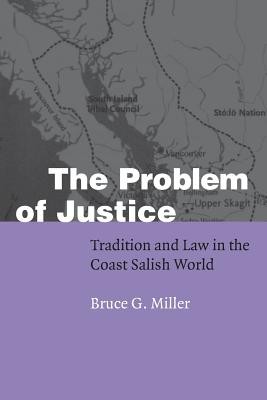
- We will send in 10–14 business days.
- Author: Bruce G Miller
- Publisher: University of Nebraska Press
- ISBN-10: 0803282753
- ISBN-13: 9780803282759
- Format: 14.1 x 22.8 x 1.4 cm, softcover
- Language: English
- SAVE -10% with code: EXTRA
Reviews
Description
For the indigenous peoples of North America, the history of colonialism has often meant a distortion of history, even, in some cases, a loss or distorted sense of their own native practices of justice. How contemporary native communities have dealt quite differently with this dilemma is the subject of The Problem of Justice, a richly textured ethnographic study of indigenous peoples struggling to reestablish control over justice in the face of conflicting external and internal pressures. The peoples discussed in this book are the Coast Salish communities along the northwest coast of North America: the Upper Skagit Indian Tribe in Washington State, the Stó lo Nation in British Columbia, and the South Island Tribal Council on Vancouver Island. Here we see how, despite their common heritage and close ties, each of these communities has taken a different direction in understanding and establishing a system of tribal justice. Describing the results-from the steadily expanding independence and jurisdiction of the Upper Skagit Court to the collapse of the South Island Justice Project-Bruce G. Miller advances an ethnographically informed, comparative, historically based understanding of aboriginal justice and the particular dilemmas tribal leaders and community members face. His work makes a persuasive case for an indigenous sovereignty associated with tribally controlled justice programs that recognize diversity and at the same time allow for internal dissent. Bruce G. Miller is associate professor in the Department of Anthropology and Sociology at the University of British Columbia.
EXTRA 10 % discount with code: EXTRA
The promotion ends in 19d.10:27:14
The discount code is valid when purchasing from 10 €. Discounts do not stack.
- Author: Bruce G Miller
- Publisher: University of Nebraska Press
- ISBN-10: 0803282753
- ISBN-13: 9780803282759
- Format: 14.1 x 22.8 x 1.4 cm, softcover
- Language: English English
For the indigenous peoples of North America, the history of colonialism has often meant a distortion of history, even, in some cases, a loss or distorted sense of their own native practices of justice. How contemporary native communities have dealt quite differently with this dilemma is the subject of The Problem of Justice, a richly textured ethnographic study of indigenous peoples struggling to reestablish control over justice in the face of conflicting external and internal pressures. The peoples discussed in this book are the Coast Salish communities along the northwest coast of North America: the Upper Skagit Indian Tribe in Washington State, the Stó lo Nation in British Columbia, and the South Island Tribal Council on Vancouver Island. Here we see how, despite their common heritage and close ties, each of these communities has taken a different direction in understanding and establishing a system of tribal justice. Describing the results-from the steadily expanding independence and jurisdiction of the Upper Skagit Court to the collapse of the South Island Justice Project-Bruce G. Miller advances an ethnographically informed, comparative, historically based understanding of aboriginal justice and the particular dilemmas tribal leaders and community members face. His work makes a persuasive case for an indigenous sovereignty associated with tribally controlled justice programs that recognize diversity and at the same time allow for internal dissent. Bruce G. Miller is associate professor in the Department of Anthropology and Sociology at the University of British Columbia.


Reviews